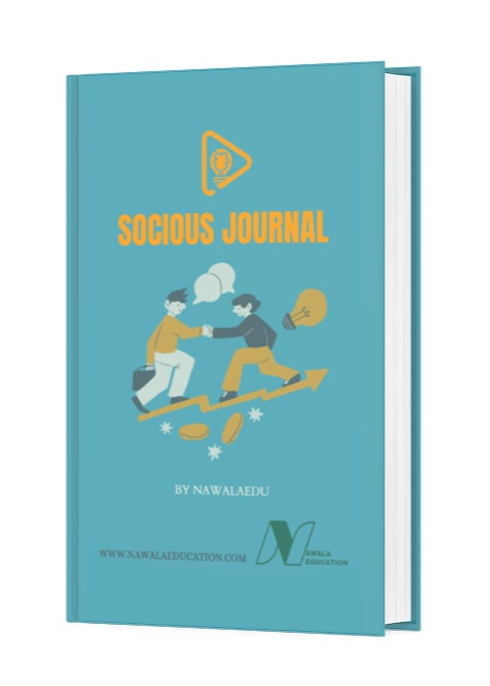The Impact of PKM in Increasing Public Awareness of Mental Health in the Digital Era
DOI:
https://doi.org/10.62872/0gb7m163Keywords:
Digitalization, Mental-Health, PKMAbstract
The development of digital technology, especially social media, has changed the way individuals interact and access information, but it has also had a negative impact on mental health. Excessive use of social media is associated with an increased risk of depression, anxiety, and decreased self-esteem, especially among adolescents and young adults. In addition, gadget addiction and the phenomenon of social comparison worsen an individual's psychological condition. On the other hand, the low level of public understanding of mental health is a major challenge in efforts to prevent and treat psychological disorders. Many individuals still consider mental health problems as taboo or personal weaknesses, which prevents them from seeking help. The Student Creativity Program (PKM) can play an important role in addressing this issue by increasing public awareness through community-based education, which can be done through various digital media and interactive activities. PKM allows students to design educational programs that are socially and culturally relevant, as well as increasing mental health literacy in the community. In the context of rapidly developing digitalization, the use of technology in PKM can expand the reach of mental health education in a more interesting and effective way. Therefore, PKM has the potential to reduce the stigma of mental health and promote psychological well-being in the community.
Downloads
References
Ahmad, A., & Nurhidaya, N. (2020). Social media and future challenges for the millennial generation. Avant Garde, 8(2), 134-148.
Arifin, B., Salim, AN, Muzakki, A., Suwarsito, S., & Arifudin, O. (2024). Integration of Strengthening Character Education in Digital Literacy-Based Learning for Elementary School Students. Innovative: Journal Of Social Science Research, 4(3), 13547-13555.
Atiqah, ST, Zubair, AGH, & Thalib, T. (2025). The Effect of Social Comparison on Body Dissatisfaction Among Female Adolescents Who Use Instagram. JOURNAL OF EDUCATION AND SOCIAL SCIENCES (JUPENDIS), 3(2), 01-12.
Cynthia, RE, & Sihotang, H. (2023). Stepping together in the digital era: the importance of digital literacy to improve students' critical thinking and problem-solving skills. Tambusai Education Journal, 7(3), 31712-31723.
Darfin, D., Julianto, J., Gani, L., & Nashatun, N. (2021). Counseling and Early Handling of Mental Disorders in the Family Circle in the Baubau Coastal Community. Nusantara Community Service Journal, 3(2), 38-46.
Hamid, A., Ritonga, S., & Nst, AM (2024). Local Wisdom of Dalihan Na Tolu as a Pillar of Religious Tolerance in South Tapanuli Society. Journal of Social Sciences and Humanities, 13(1), 132-143.
Hasibuan, AR, Pasaribu, AF, Alfiyah, S., Utami, JN, & Harahap, NRY (2024). The Role of Health Education in Increasing Public Awareness of Healthy Lifestyles in the Digital Era. Didaktika: Journal of Education, 13(001 Dec), 305-318.
He, K., Hemmila, M.R., Cain-Nielsen, A.H., Machado-Aranda, D.A., Frydrych, L.M., & Delano, M.J. (2019). Complications and resource utilization in trauma patients with diabetes. PLoS One, 14(8), e0221414.
Judijanto, L., Sandy, S., Yanti, DR, Kristanti, D., & Hakim, MZ (2023). Development of Small and Medium Enterprises (SMEs) Based on Technology Innovation to Encourage Local Economic Growth. Community Development Journal: Journal of Community Service, 4(6), 12500-12507.
Kusumawati, PD, Arlia, A., Abdal, F., Agustini, A., & Kurniawan, W. (2025). ANALYSIS OF THE IMPACT OF STIGMA ON MENTAL ILLNESS AND EFFORTS TO REDUCE IT IN THE SOCIETY. PREPOTIF: JOURNAL OF PUBLIC HEALTH, 9(1), 278-286.
Marlia, A., Darmawan, MI, Sari, IT, Rendrahadi, D., Nosa, A., Agustina, A., & Kusmara, PW (2023). The Role of Guidance and Religious Education Teachers in Overcoming Problems Regarding Social Media Trends of Shailendra Middle School Students in Palembang. SIGNIFICANT: Journal of Research and Multidisciplinary, 2(02), 202-217.
Paramartha, WE, Dharsana, IK, & Syah, MJ (2024, December). STRENGTHENING DIGITAL LITERACY AND MENTAL HEALTH IN ELEMENTARY SCHOOL TEACHERS. In National Seminar on Community Service (Vol. 9, No. 1, pp. 1228-1235).
Pratiwi, CR, Fathurohman, I., Prahardik, SE, & Sholihah, NA (2024). Mentoring of Salted Egg Making MSMEs in Kalensari Village: Strategy for Improving Product Quality and Marketing through the PKM Program. Journal of Civilization of Society, 4(2), 68-77.
Pratiwi, DI, & Hernawati, L. (2025). The Relationship between Academic Stress and Self-Efficacy with Smartphone Addiction in Junior High School Students. Al Qalam: Journal of Religious and Social Sciences, 19(2), 973-991.
Prihatiningsih, E., & Wijayanti, Y. (2019). Mental emotional disorders of elementary school students. HIGEIA (Journal of Public Health Research and Development), 3(2), 252-262.
Puspitasari, CA, Kamaludin, M., Pratama, MR, & Azahra, SA (2025). The Influence of the Fear Of Missing Out (Fomo) Phenomenon on the Level of Anxiety and Life Satisfaction of Gen Z Students on Social Media. Jurnal Intelek Insan Cendikia, 2(1), 1298-1310.
Rahman, MF, Anshori, M., & Arifin, S. (2025). Utilization of Social Media and Educational Videos in Student Social Action. SINAR: Synergy of Community Service and Innovation, 1(02), 141-152.
Sihaloho, W., Tanjung, DR, Harahap, SA, Barus, A., Ningsih, SP, & Rohali, A. (2023). Education and Social Change. Journal of Islamic Studies, 5(3), 829-841.
Silalahi, VHC, Purba, BKF, & Sihombing, RA (2024). Building the Welfare of a Healthy Indonesian Society: A Comprehensive Strategy in Disease Prevention, Health System Reform, and Increasing Awareness of Mental Health Issues. Jurnal Cakrawala Akademika, 1(3), 143-162.
Susiang, MIN, & Ghofur, M. The Influence of Social Media on Changes in Social Values among Millennials. Social Journal 1(5), 21-28
Syukur, A., Fadilla, A., Kifli, HN, Selti, ITA, Mubaraq, MDAN, & Hidayati, N. (2025). The Role of Media Literacy in Combating Hoax News on Social Media. Journal of Social Education and Humanities, 4(1), 823-836.
Wijayanti, S., Rahmatika, R., & Listiyandini, RA (2020). The contribution of gratitude in improving the quality of life and health in adolescents in orphanages. Psycho Idea, 18(1), 33-44.
Wulandari, D., & Budiani, MS (2020). The relationship between social comparison and materialism in students of SMK X in Kediri City. Character Journal of Psychological Research, 7(04), 121-133..
Downloads
Published
Issue
Section
License
Copyright (c) 2025 Pius Weraman, Nurul Fadhilah, Suci Lukitowati (Author)

This work is licensed under a Creative Commons Attribution-ShareAlike 4.0 International License.

This work is licensed under a Creative Commons Attribution-ShareAlike 4.0 International License.











